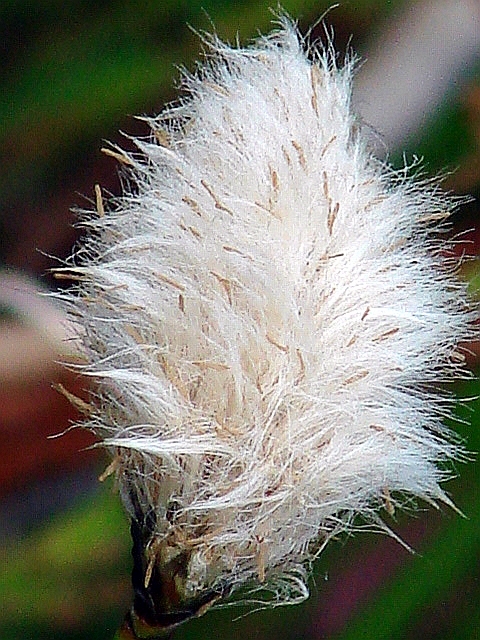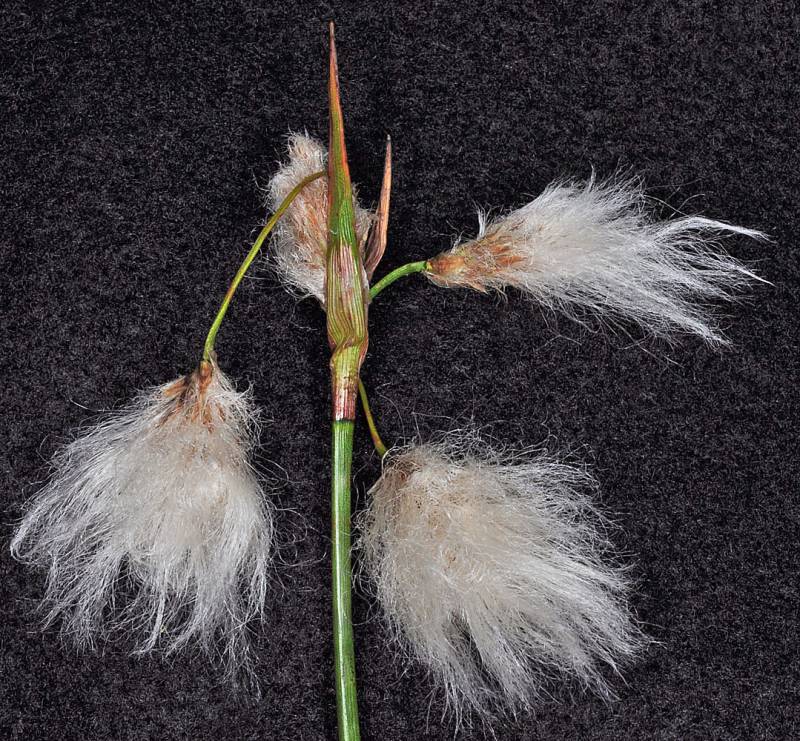Eriophorum chamissonis
Eriophorum viridicarinatum
Chamisso's cotton-grass, russet cottongrass
tassel cottongrass
Leaves few, mostly basal, with well-developed sheath and narrow, channeled blade up to 2 mm. wide; sheathes closed; uppermost sheath about mid-culm, often bladeless.
Spikelet terminal and solitary, with up to 7 sterile scales, the outermost enlarged, up to 2 cm. long; fertile scales subtending the flowers partly blackish-green, with the tip and margins paler, russet-flecked on a whitish background;
perianth consisting of numerous capillary bristles 2-4 cm. long, reddish to white;
stamens 3;
style trifid.
Achenes dark, about 2 mm. long, obovate.
Eriophorum chamissonis
Eriophorum viridicarinatum
Occurring west of the Cascades crest and in the northeastern corner of Washington; Alaska to Oregon, east to the Rocky Mountains, northern Great Plains, and Great Lakes region.
Occurring east of the Cascades crest in northeastern Washington; Alaska to northeastern Washington, Idaho, western Montana, Wyoming, and Colorado, east across the northern Great Plains to the Great Lakes, and northeastern North America.



